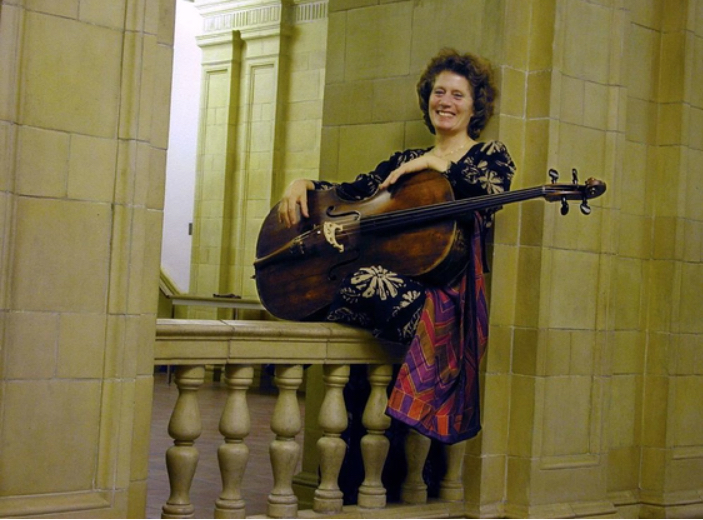Tanya Prochazka is very fond of quoting her mother: “Well, darling, you have to live it up!”
That quote, and the message it carries, guided the outstanding Edmonton cellist through the hard years of struggle with ovarian cancer. But, now that the battle is won, she does not want to dwell on it. “That was then,” says Prochazka. “It belongs to the past and I’d rather focus on what I’m doing at present. I’m quite busy, you know. Carpe diem!”
A graduate of the Paris de Conservatoire, Prochazka was born in Melbourne, Australia into a great artistic family. A bit of a nomad, in 1974 she settled in Vienna and quickly became involved with some of the biggest chamber music groups active in Austria. In 1978, she moved again, this time to London, England. There she stayed for more than a decade, teaching at the Royal Academy of Music and the Guildhall School of Music.
Finally, in 1986, she made Edmonton her home. Two years later, she became professor of cello and chamber music at the University of Alberta. “This is the best job in the world for me,” she says, “because I can play, teach and conduct to my heart’s and imagination’s content.”
This year, her major engagement was at Carnegie Hall in New York. Renowned Edmonton pianist Sylvia Shadick-Taylor had received an invitation to perform at the hall, and wanted Prochazka to join her onstage for the March performance.
“Sylvia thought of a recital featuring 20th-century music. Risky though it seemed – I was still in chemotherapy – I said yes. Together, we developed a program including classics and new Canadian works. We picked ‘Three Songs from Jewish Life’ by Ernest Bloch, the cello sonatas by Sergei Prokofiev and Alfred Schnittke, and two Canadian works, Paul William Pura’s ‘Nemesis’ for piano and Donald Steven’s ‘Illusions’ for solo violoncello. It’s a great selection, combining big Russian narratives with Jewish and Canadian themes.”
